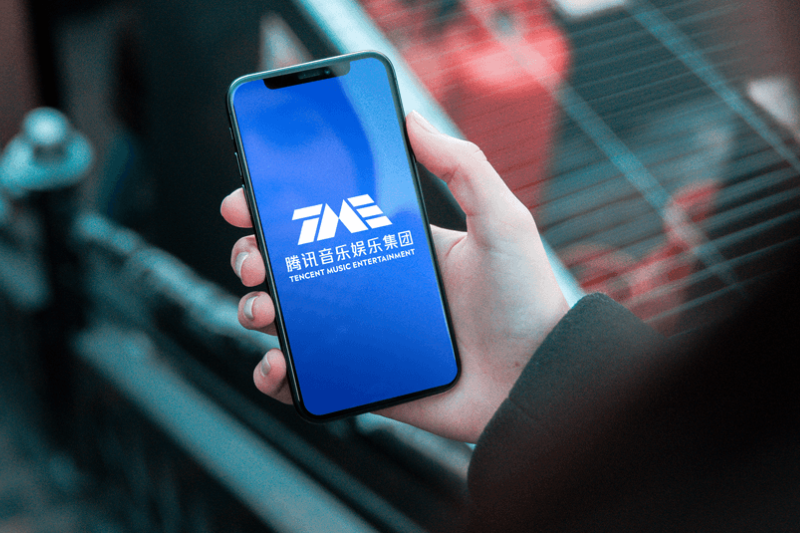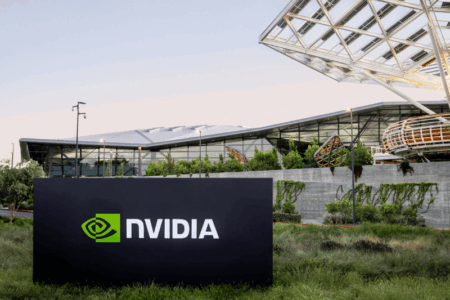In May 2025, China released details of its Digital China Plan.
This plan outlines the push for “Artificial Intelligence (AI) Plus” application and developing data infrastructure.
The end goal for this plan is to increase China’s computing power and grow the digital economy share of GDP beyond 10%.
This sweeping push creates a prime environment for leading tech firms in the country to scale their platforms.
Here are three firms that may benefit from this wave of digital transformation.
Tencent Music Entertainment Group (NYSE: TME)
Tencent Music Entertainment or TME is China’s leading online music entertainment platform, combining streaming and social networking services.
In the second quarter of 2025 ending 30 June 2025 (2Q 2025), TME reported a revenue growth of nearly 18% year-on-year (YoY) to around US$1.2 billion.
The firm also saw an increase in net profits of 43.2% YoY to US$336 million.
This robust financial performance can be attributed to its online music services which saw revenue surging by 26.4% YoY to US$957 million.
Additionally, music subscription revenue also climbed 17.1% YoY to US$611 million.
Management credits both segment growth to successful product innovations especially for their Super VIP (SVIP) customers.
For instance, Kugou Music, one of TME’s music platforms, introduced VIPER HiFi and One-Click Audio Entertainment 2.0.
These features provided personalised and premium sound quality for listeners.
Furthermore, TME also pioneered an AI chorus voice extraction feature to improve live concert singalongs, making user experience more engaging.
The rolling out of these new features increased SVIP adoption.
Elsewhere, there are two key developments that investors should note.
On 10 June 2025, TME announced its acquisition of Ximalaya.
Ximalaya is China’s leading online audio platform.
In my view, TME is able to tap into Ximalaya’s content library and expand its long-form audio services such as podcasts and audiobooks.
On 25 August 2025, Galaxy Arena and TME Live renewed their strategic partnership.
This partnership allows TME Live to continue hosting its flagship events such as award shows and concerts at the Galaxy Arena in Macau.
This supports TME’s live entertainment segment topline growth in the form of tickets and merchandise sales.
NetEase Inc. (NASDAQ: NTES)
NetEase is China’s leading internet and game services firm.
In 2Q 2025, NetEase reported a rise in revenue of 9.4% YoY to US$3.9 billion.
The firm’s bottom line also saw a jump of 27.3% YoY to a net profit of US$1.2 billion.
One of the main reasons for this jump is from the firm’s gaming services which has an increase in revenue of 13.7% YoY to US$3.2 billion.
The increase stems from the strong portfolio of games such as Sword of Justice which reached the number three spot in China’s IOS top-grossing chart.
Another reason is the growth in revenue in Youdao by 7.2% YoY to US$198 million.
Youdao is NetEase’s educational technology business providing online courses and digital learning tools.
This growth is due to the integration of AI into its services such as AI tutoring and AI-ad placement optimisation.
On 19 June 2025, NetEase announced Blood Message, its first AAA single-player title.
AAA titles are for games developed with a high-budget with a strong distribution line of established publishers.
This positions NetEase competitively to other international players and increases its global brand as a game developer.
Baidu Inc. (NASDAQ: BIDU)
Baidu is China’s premier internet search engine company.
In 2Q 2025, Baidu reported revenue of US$4.6 billion, a decline of 4% YoY.
Nevertheless, the company saw an uplift in net profits of 33% YoY to US$1 billion.
Management credits this increase to its successful AI initiatives.
These initiatives include the AI transformation of Baidu Search for its mobile ecosystem.
This addition of AI improves the quality of the results provided by the search engine.
The improvements translated into robust figures, with Baidu App’s monthly active users rising by 5% YoY to 735 million in June 2025.
In addition, Baidu core non-online marketing revenue, including Baidu AI Cloud and Apollo Go, saw a 34% YoY growth to US$1.4 billion.
Beyond the results, there are two other key partnerships worth noting.
In August 2025, Baidu announced a strategic partnership with ride-hailing operator, Lyft (NASDAQ: LYFT).
The partnership gave Apollo Go’s autonomous vehicles to gain access to the European markets.
On 10 August 2025, Baidu entered into partnership with DeepX.
DeepX is a South Korean AI semiconductor manufacturing company.
This partnership will enable Baidu to further develop their AI models such as PaddlePaddle and ERNIE with DeepX’s low-powered chips.
Get Smart: Capturing China’s digital expansion
As China fast-tracks its digital future, companies and consumers are adapting to the changing landscape.
Aligning with national priorities, these firms will be able to accelerate the development of their existing and future products, especially ones pertaining to AI.
The Digital China Plan gives investors a chance to tap into the next phase of China’s tech-driven growth.
Big Tech is spending hundreds of billions on AI, and the ripple effects are just beginning. Our new investor guide shows how AI is changing the way companies generate revenue, structure their business models, and gain an edge. Even if you already know the major players, this report reveals something far MORE important: The why and how behind their moves, and what it means for your portfolio. Download your free report now.
Follow us on Facebook, Instagram and Telegram for the latest investing news and analyses!
Disclosure: Gabriel does not own shares in any of the companies mentioned.






